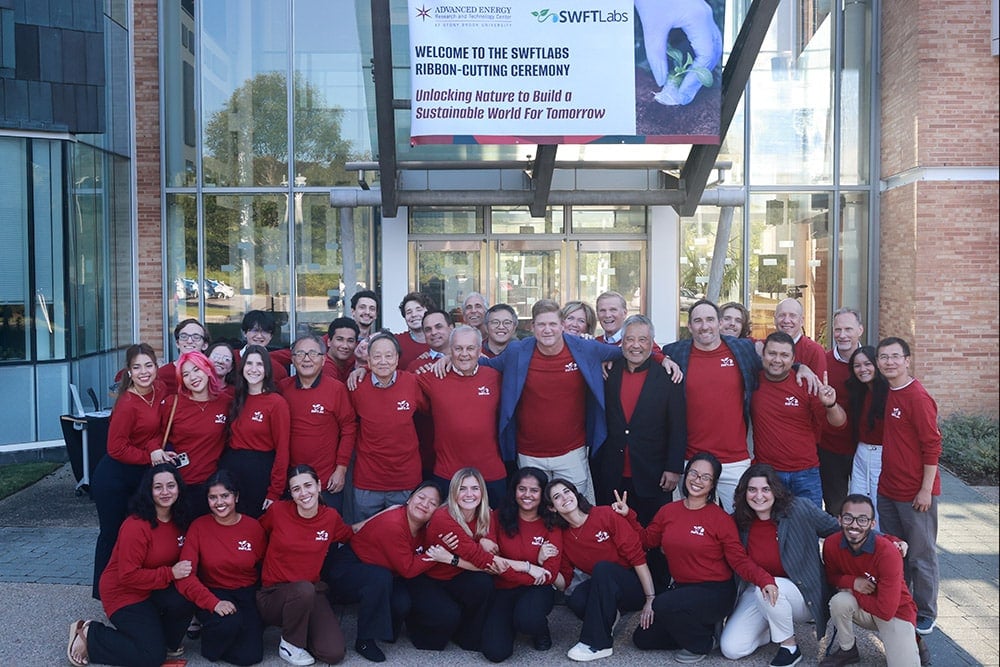Key Takeaways
- SWFTLabs, a biotechnology startup based in New York, has secured an exclusive patent license agreement for its core technology from the Research Foundation for the State University of New York (SUNY).
- The license marks the company’s transition out of “stealth mode” and supports its expansion into agriculture, packaging, and specialty biomaterials.
- SWFTLabs develops zero-waste nanocellulose technologies that convert agricultural byproducts and organic feedstocks into fertilizers, coatings, packaging, and advanced biomaterials.
- The company has grown within Stony Brook University’s innovation ecosystem and now plans to scale its solutions globally.
SWFTLabs Partnership with SUNY
The agreement formalizes a collaboration between SWFTLabs and Stony Brook University (SBU), where the company’s platform technology was developed. The process, pioneered by Distinguished Professor Benjamin S. Hsiao, uses advanced chemistry to break down organic matter into nanocellulose fibers and nutrient-rich byproducts in a closed-loop, zero-waste system.
“Working with facilities like LIHTI and AERTC has provided us with the space and, in some cases, the specialized equipment to perform critical tests and essential experiments,” said David W. Clausen, CEO and Co-Founder of SWFTLabs. “They’ve empowered us to think bigger and given us the foundation to scale and lead.”
Innovation Ecosystem at Stony Brook
SWFTLabs has advanced through Stony Brook’s innovation programs, including the Long Island High Tech Incubator, the Strategic Partnership for Industrial Resurgence (SPIR), and the Advanced Energy and Technology Center. The company now occupies six incubator spaces and has created new jobs through SPIR support.
“This milestone reflects the power of partnership between our faculty, students, and entrepreneurs,” said Kevin Gardner, Vice President for Research and Innovation at SBU. “By moving discovery from the lab to the marketplace, SWFTLabs is helping to ensure that groundbreaking research directly benefits society and drives economic growth.”
Technology and Applications
The company’s platform is designed to reimagine waste as a resource, producing:
- Next-generation fertilizers free of harmful microplastics.
- Biodegradable coatings and packaging as alternatives to petroleum-based plastics.
- Hydrogels for agriculture and healthcare.
- Specialty biomaterials with potential applications in energy storage, building materials, and aerospace.
“Our success underscores the strength of our innovation ecosystem and its potential to transform industries,” said Michael Kinch, Chief Innovation Officer at SBU.
SWFTLabs Public Launch and Next Steps
To commemorate the license agreement, SWFTLabs and SBU co-hosted a ribbon-cutting event at the Center of Excellence in Wireless and Information Technology on September 18, 2025. The event introduced the company’s technology to a broader audience and showcased its role within the university’s innovation ecosystem.
“This license agreement is the springboard for SWFTLabs to scale our solutions, helping turn waste into profit while meeting the world’s demand for a healthy and sustainable supply of nutrient-rich food,” Clausen added.
Looking ahead, SWFTLabs aims to establish a dedicated research and innovation campus in Stony Brook focused on eliminating PFAS “forever chemicals” and developing fiber-based alternatives to plastics.


